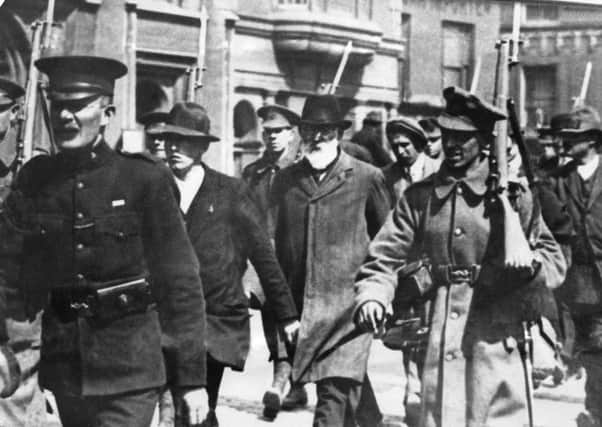Theatre review: Rebellion


Websters Theatre, Glasgow ***
Set in two time-frames – 1916-19 and the present day – Rebellion follows the story of the Glasgow-Irish Murphy family, whose forefather Tom played a major part in the 1916 Rebellion. Tom’s great-grand-daughter Mary inherits old boxes full of memorabilia of those times; but meanwhile, in modern Scotland, her Rangers-supporting husband is bullying her beyond endurance, and her son John – a computer whizz-kid – is staging his own dark web rebellion against the powers-that-be of the 21st century.
The style of the two-hour play is invincibly old-fashioned, with two acts of long dialogue scenes set in locations from Mary’s kitchen table to the post-Rising British prison camp in Wales. It’s impressive, though, to see the Sweet For Addicts company, working with people whose lives have been touched by addiction, tackle a slice of Glasgow Irish working-class history with such commitment and talent; and if the production’s soundtrack of emotive rebel songs doesn’t quite capture the complexity of the different faces of oppression Mac Giolla Bhain tries to evoke, it nonetheless reminds us of the passion for freedom that won Ireland its 21st century place as an independent European nation, and of how Britain forgets or discounts that passion at its peril.
JOYCE MCMILLAN